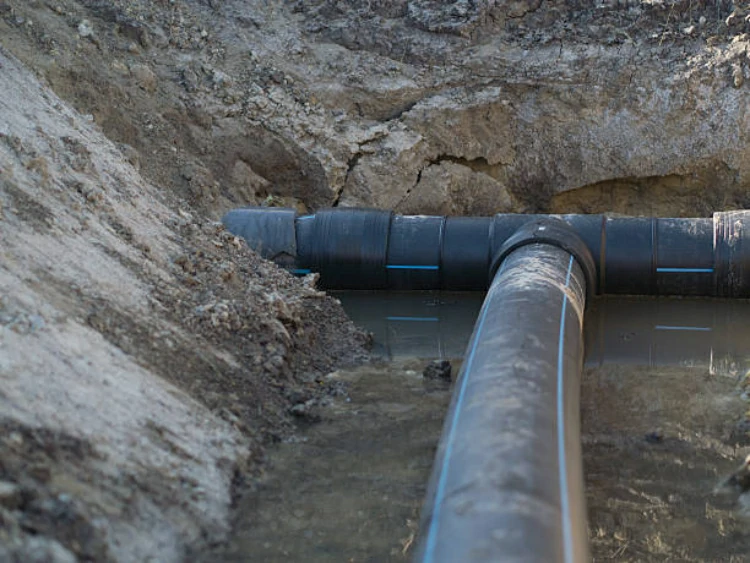Introduction to Pipe Materials
Understanding HDPE Pipes
High-Density Polyethylene (HDPE) pipes have become a popular choice in various industries due to their numerous advantages. Known for their durability, flexibility, and chemical resistance, HDPE pipe offer significant benefits in diverse applications.
Common Alternatives to HDPE Pipes
When selecting pipes for a project, several materials come into consideration, including PVC (Polyvinyl Chloride), steel, and copper. Each of these materials has its own set of characteristics, making it essential to understand how they compare to HDPE pipes.
Importance of Material Selection
Choosing the right pipe material can significantly impact the longevity, cost, and performance of a piping system. Therefore, understanding the differences between HDPE and other pipe materials is crucial for making informed decisions.
Performance Comparison of HDPE Pipes with Other Materials
Durability and Longevity
HDPE pipe stand out for their exceptional durability. Unlike metal pipe, which can suffer from rust and corrosion over time, HDPE pipe resist these issues, ensuring a longer lifespan. PVC pipes also offer durability, but HDPE pipe generally perform better in extreme conditions, such as freezing temperatures or high-pressure environments.
Flexibility and Installation
One of the key advantages of HDPE pipe is their flexibility. This flexibility allows for easier installation, especially in terrains with curves and bends. Steel and copper pipes, on the other hand, require more fittings and joints to navigate such terrains, leading to increased installation time and costs. PVC pipes, while flexible to some extent, do not match the flexibility of HDPE pipes.
Chemical Resistance
HDPE pipe exhibit superior chemical resistance compared to steel and copper pipes, which can corrode when exposed to certain chemicals. This makes HDPE pipe ideal for transporting a variety of fluids, including industrial chemicals, without degrading. PVC pipes also offer good chemical resistance, but HDPE pipe provide a broader range of compatibility.
Economic and Environmental Considerations
Cost Efficiency
In terms of cost, HDPE pipe offer significant savings over their lifecycle. While the initial cost of HDPE pipes may be comparable to or slightly higher than PVC pipes, they generally cost less than steel or copper pipes. Moreover, their durability and low maintenance requirements result in lower long-term costs.
Maintenance Requirements
HDPE pipes require minimal maintenance compared to metal pipes, which often need regular inspections and treatments to prevent rust and corrosion. PVC pipes also require minimal maintenance, but HDPE’s resilience to environmental stressors gives it an edge in maintaining performance with little upkeep.
Environmental Impact
From an environmental perspective, HDPE pipe are highly advantageous. They are made from recyclable materials and have a lower carbon footprint compared to steel and copper pipes. Additionally, their lightweight nature reduces transportation energy costs. PVC pipes, while also recyclable, can release harmful chemicals during production and disposal, making HDPE a more environmentally friendly option.
Conclusion
Summarizing the Benefits of HDPE Pipes
In conclusion, HDPE pipe offer numerous performance benefits over other pipe materials. Their durability, flexibility, chemical resistance, and cost efficiency make them an ideal choice for a wide range of applications. By comparing HDPE with PVC, steel, and copper pipes, it becomes clear that HDPE provides superior overall performance, especially in demanding environments.
Making Informed Choices
Ultimately, the choice of pipe material should be based on the specific needs of the project, considering factors such as the type of fluid being transported, the environmental conditions, and budget constraints. However, HDPE pipes consistently demonstrate advantages that make them a preferred option for many industries.
Looking to the Future
As technology advances and the need for sustainable solutions grows, HDPE pipe will likely continue to gain popularity. Their proven performance and environmental benefits position them as a forward-thinking choice in the evolving landscape of piping systems.
IFAN is a Chinese manufacturer of plastic pipes, fittings and valves with 30 years of experience. If you are interested in IFAN Raccords en cuivre, vannes en cuivre, tuyaux et raccords en plastique, veuillez nous contacter. IFAN offers you a variety of standard pipes to meet your specific needs. Click below to learn more about IFAN’s wide range of affordable and cost-effective valve products and piping system related products.
We will reply your email or fax within 24 hours.
You can call us at any time if there is any question on our production.
For more information,pls visit our webside https://ifanpro.com/
Veuillez envoyer un courrier à l'adresse suivante [email protected]
Whatsapp : + 86 19857948982














Commentaires récents